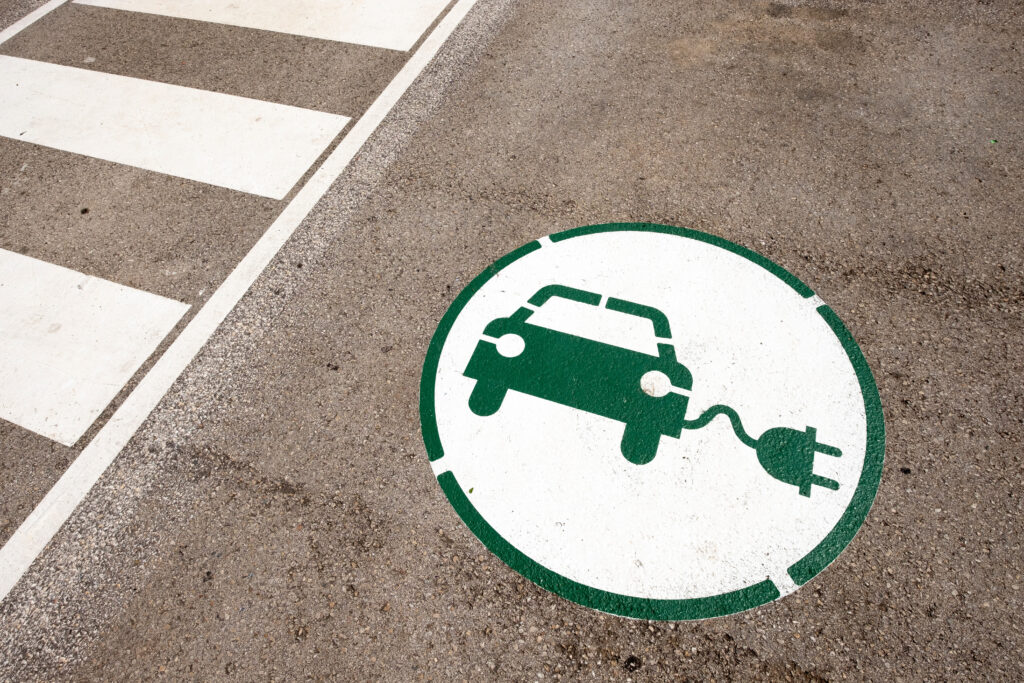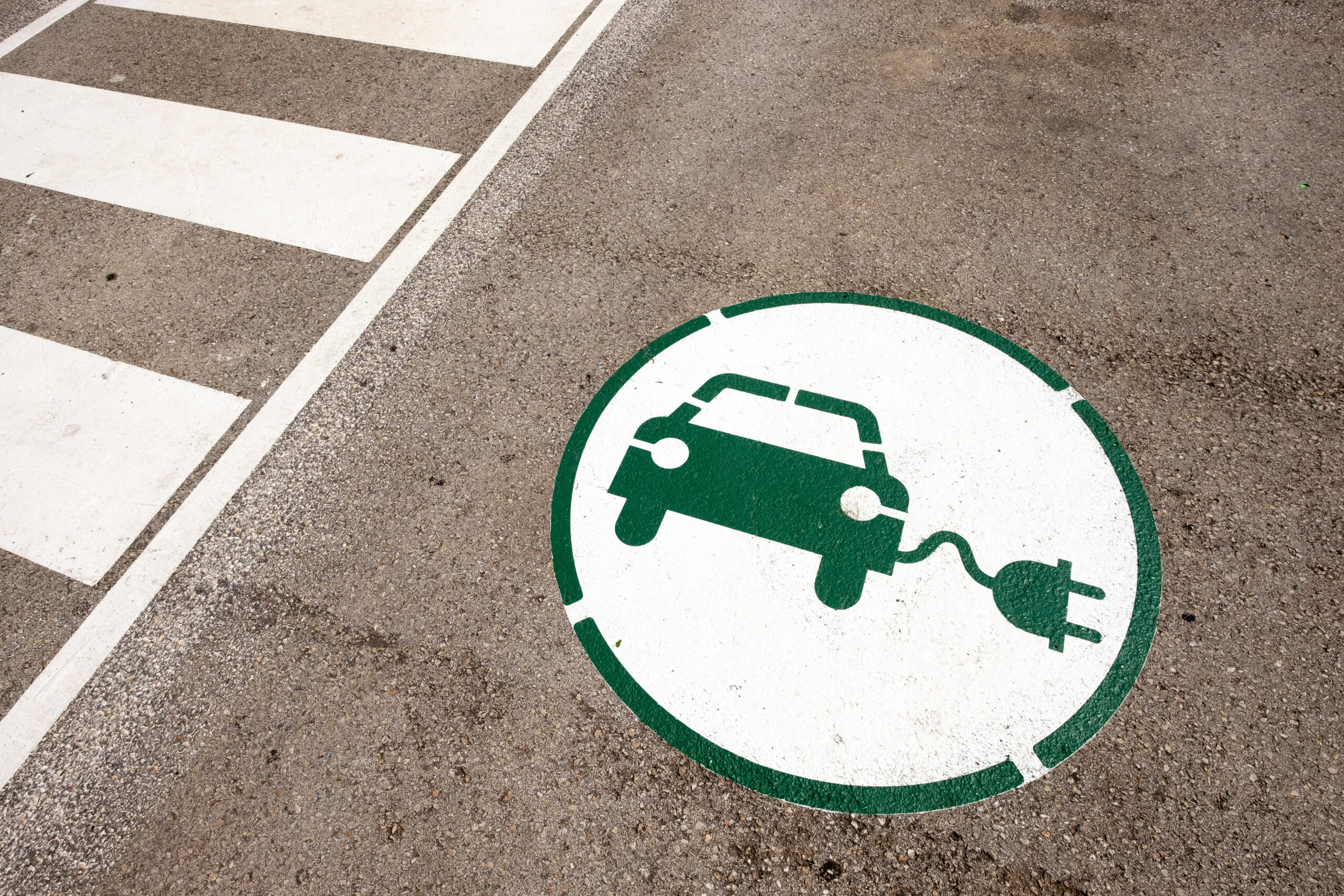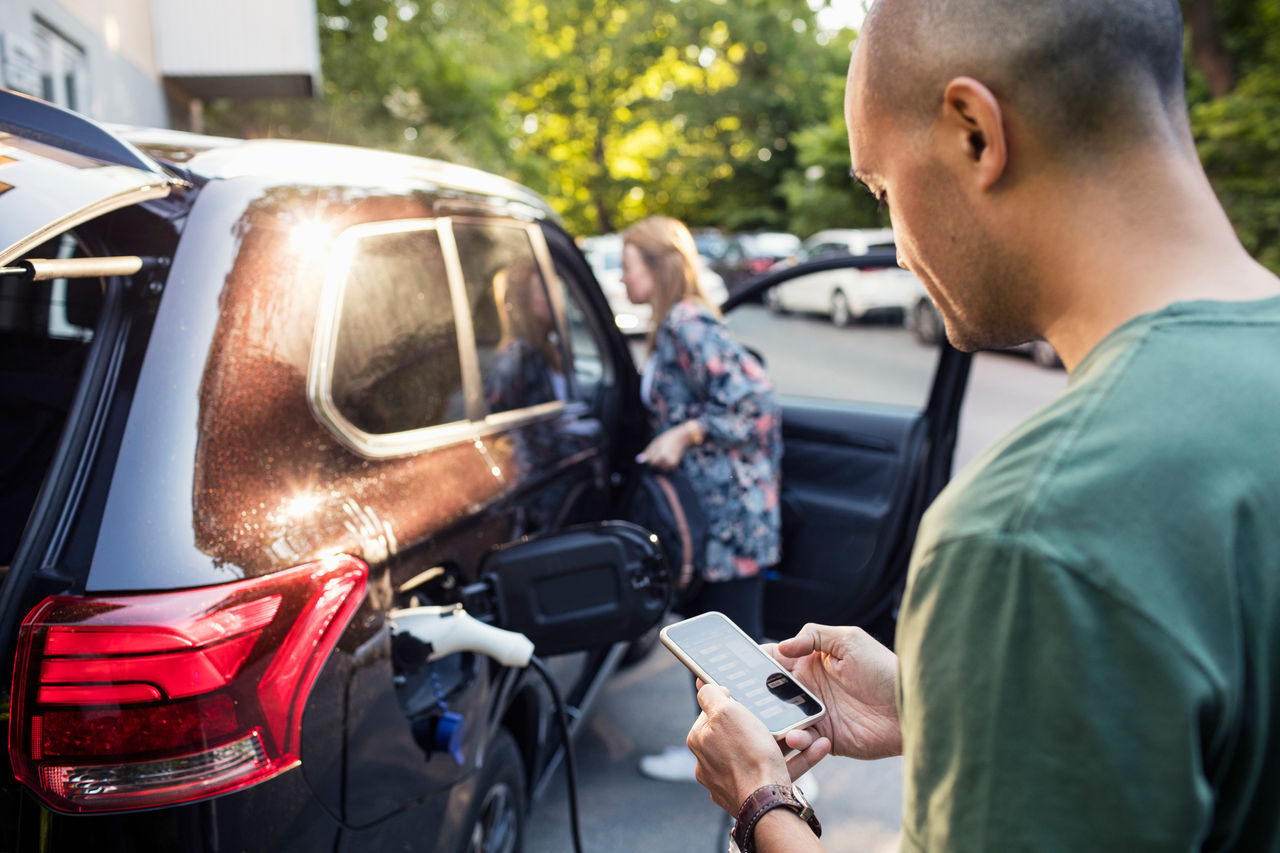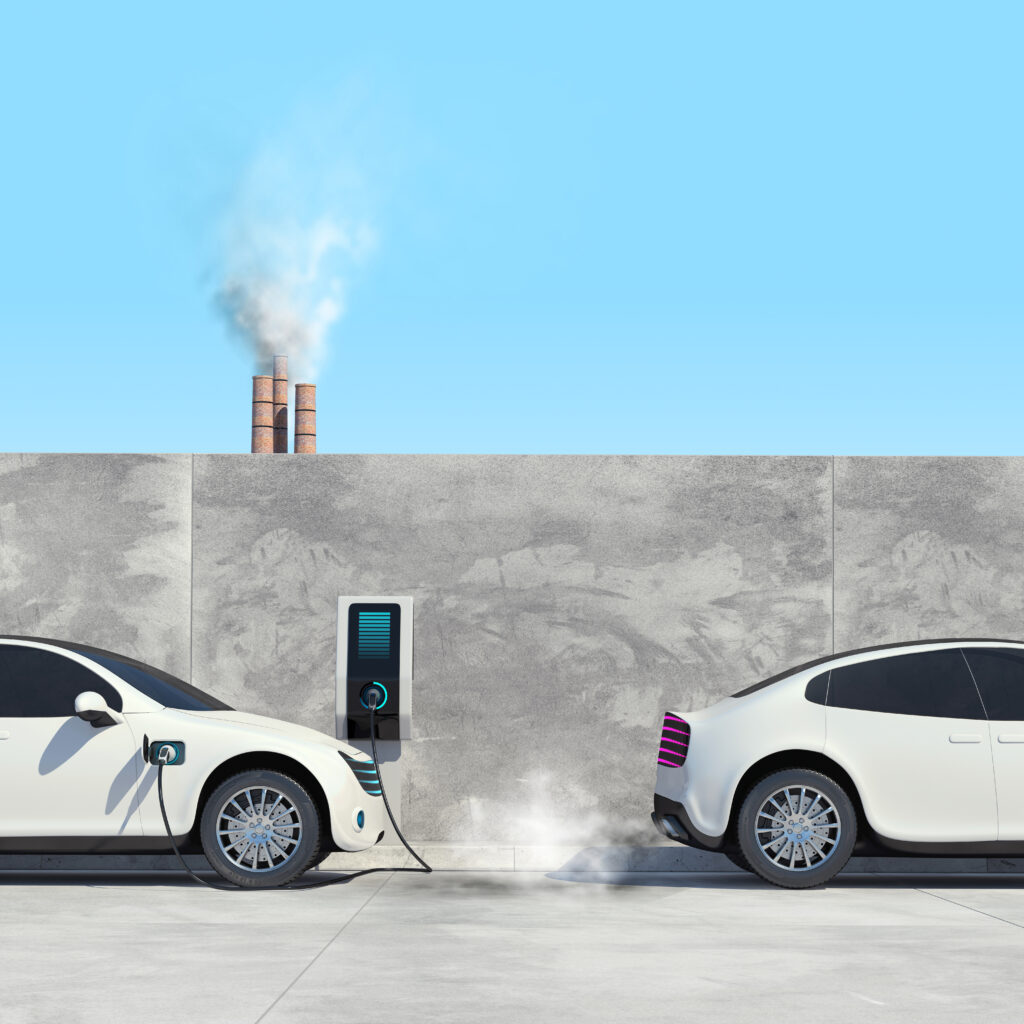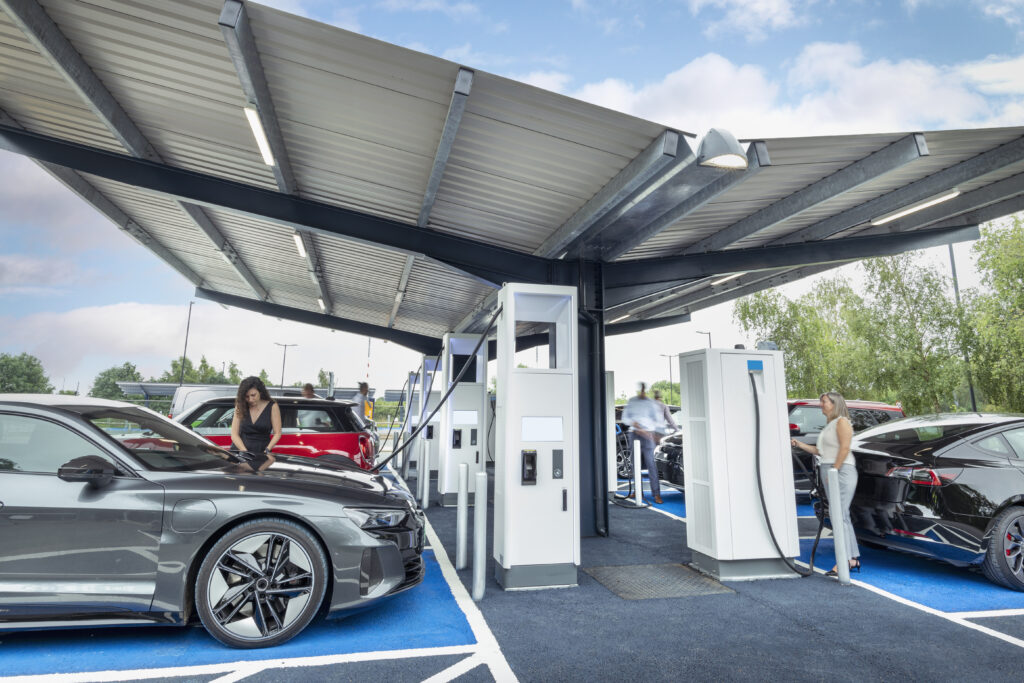
Vehicle fires have decreased an estimated 62% since 1980, according to the National Fire Protection Association. Yet, the stats show that such incidents are still a major problem. There were approximately 208,500 vehicle fires in 2021, causing 680 deaths, 1,500 injuries and $2.1 billion in property damage. On average, fire departments responded to a vehicle fire once every 3 minutes.
With this problem in mind, many people have homed in on electric vehicles. New technology often arrives with as many questions as answers. One such question surrounding EVs deals with their propensity to catch fire. Recent headlines and viral videos of EVs on fire have sparked the belief that these battery-powered cars are more likely to catch fire than their gas-powered counterparts. Not only is there no evidence to support this, early data shows that the opposite may be true.

EVs are equipped with high-voltage, lithium-ion battery packs, which can pose a fire risk if damaged or improperly maintained. According to the National Fire Protection Association, EV fires can occur:
- If the battery pack is damaged, experiences internal cell failure, or is exposed to extreme temperatures or high humidity.
- If the EV is overcharged or there are problems with the charging station or cables.
- When damage from a traffic crash causes ignition.
- When a lithium-ion battery reignites after an initial fire has been extinguished.
While EV fires can occur, they are relatively rare. In a study examining non-crash fire insurance claims, the Highway Loss Data Institute found EV fires were slightly less frequent than their conventional counterparts (0.19 claims per 1,000 insured vehicle years vs. 0.20 claims). The Insurance Institute for Highway Safety, meanwhile, has yet to experience a fire since it began crash testing EVs in 2011.
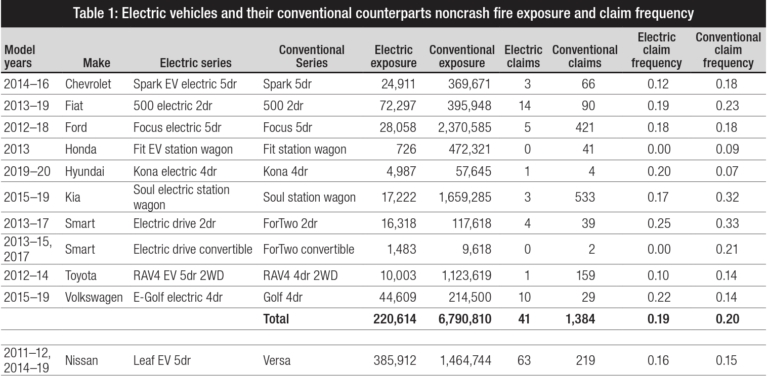
Even without looking at the data, we know that EVs have several innate qualities that limit the likelihood of catching on fire, compared to gas-powered cars. Firstly, it takes time for a battery to accumulate enough energy (and heat) to ignite. This is in stark contrast to internal combustion engine cars. As their name implies, combustion engines generate power through a continual cycle of small explosions. A single spark, therefore, could cause a fire immediately after the engine is turned on.
EVs also have the benefit of age (or lack thereof). Car fires are most often mechanical or electrical in nature. These types of fires become more common as vehicles age. Most EVs on the road today are relatively new, and thus, generally not susceptible to the fire hazards of older cars.
While data shows they are not more likely to catch on fire, EVs do pose a greater safety risk if a fire erupts. Lithium-ion batteries burn at a significantly high temperature, making them much more difficult to extinguish if they catch fire. Furthermore, under certain conditions, they can reignite, creating a secondary safety risk.

Like gas-powered vehicles, EVs must meet the Federal Motor Vehicle Safety Standards. This requires passing rigorous safety tests, including those that subject the car’s batteries to conditions such as overcharge, vibration, extreme temperatures, short circuit, humidity, fire, collision and water immersion.
Manufacturers have also begun implementing a number of safety features that help prevent battery fires. These include battery management systems that monitor temperature, charge level and voltage; crash sensors that cuts off a battery’s power when the vehicle has been in a collision; and automatic shut-off technology that shuts off a battery when the temperature or voltage gets too high.
In 2021, the National Transportation Safety Board recommended EV makers improve their emergency response guides, which are used by first responders. As of June 2022, eight manufacturers have complied with the request, with 12 more working toward compliance.
AAA’s Recommendation: Whether you own an electric vehicle or a gas-powered car is up to you – and you should consider lots of factors in making that choice. No matter what type of vehicle you’re choosing, we recommend visiting a dealership, test driving one, and asking as many questions as possible to make an informed decision.

